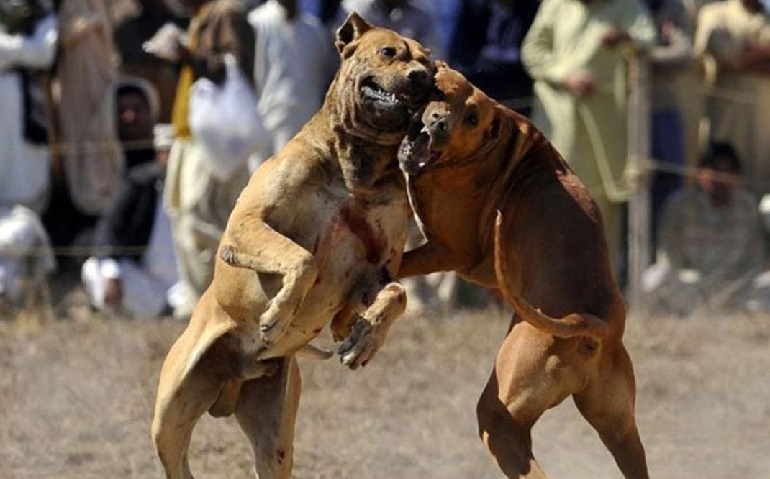Dog fighting is a heinous activity that epitomizes animal cruelty, a term that encompasses various forms of maltreatment inflicted upon animals. Defined as the organized, deliberate infliction of suffering on dogs, this brutal practice transforms innocent animals into mere instruments of entertainment and profit. This article explores how dog fighting is classified as animal cruelty, examining both the legal ramifications and the moral implications associated with this abhorrent practice.
At the core of understanding how dog fighting is considered animal cruelty lies an examination of the various facets of this cruel enterprise. Dog fighting events, often staged in clandestine locations, are characterized by betting, fervent spectators, and, most importantly, the suffering of the animals involved. Dogs are trained to be aggressive through brutal methods that often include starvation, physical abuse, and the use of performance-enhancing drugs designed to heighten their ferocity. Such methods not only inflict lasting psychological scars but also result in severe physical injuries or even death during these barbarous confrontations.
From a legal perspective, dog fighting is unequivocally classified as animal cruelty under numerous statutes and regulations. In the United States, the Animal Welfare Act serves as a crucial legal framework that prohibits the engagement in animal fighting ventures. This legislation outlines the responsibilities of pet owners and prohibits the act of causing or allowing animals to engage in fights. With penalties that may include fines and imprisonment, the legal system aims to deter participation in such horrific practices. However, enforcement can be challenging as dog fighting often occurs in secret, far removed from the scrutiny of law enforcement.
In addition to the federal laws, many states have enacted their own specific laws to combat dog fighting further. These state laws often impose harsher penalties for the owners of the fighting dogs and those who organize the events. In recent years, a focused campaign against dog fighting has led to significant discussions regarding the classification of dog fighting as a felony offense, a move that underscores the seriousness with which society regards this issue. Yet, despite these legal measures, dog fighting remains a persistent problem. The underground nature of these fights often leads to a lack of accountability and prosecution, leaving countless dogs in perilous situations.
Beyond the legal framework, the moral implications of dog fighting merit profound consideration. The ethical dilemmas posed by this practice challenge societal values and highlight a profound disconnect between human actions and animal welfare. Dog fighting is not merely a criminal act; it represents a cultural phenomenon rife with moral ambiguity. Those who participate in such events often rationalize their behavior through misguided notions of power, control, and superiority. This mentality perpetuates a harmful cycle of violence and dominion over sentient beings, calling into question humanity’s role as stewards of other species.
Moreover, the repercussions of dog fighting extend beyond the immediate harm inflicted on the animals involved. The byproducts of this nefarious activity infiltrate communities, breeding environments saturated with violence and neglect. Studies have shown a compelling correlation between areas where dog fighting is prevalent and an increase in other forms of crime, including domestic violence and drug trafficking. The presence of organized dog fighting operations perpetuates a culture that normalizes violence, placing both animals and humans at risk.
To combat the insidious nature of dog fighting, a multifaceted approach is required. Community education plays a pivotal role in raising awareness and fostering empathy towards animals. By integrating programs into schools, community centers, and local organizations, individuals can become acquainted with the profound consequences of dog fighting and the importance of compassion for all living beings. Engaging young minds in discussions about animal welfare can cultivate a culture of respect and responsibility towards animals, thus seeding the values necessary to eradicate such practices from society.
Efforts to rehabilitate former fighting dogs represent another crucial dimension in addressing the legacies of dog fighting. Stories of rescued dogs overcoming their violent pasts serve as potent testimonies to the resilience of these creatures. Many rehabilitation programs aim to reintroduce these dogs into society by providing them with training and behavioral modification to help heal their trauma. Successful rehabilitation not only highlights the importance of second chances for these animals but also underscores the moral imperative to advocate for their rights and well-being. Ensuring that adopted dogs find loving, compassionate homes can foster a sense of hope and purpose, transcending the devastation wrought by their previous experiences.
Another compelling aspect of the fight against dog fighting is the collaboration between various stakeholders, including law enforcement, animal protection agencies, veterinarians, and community advocates. Through joint efforts, these entities can implement comprehensive strategies to dismantle dog fighting rings, provide support to local shelters, and facilitate the adoption of rescued animals. This multifaceted collaboration not only amplifies the effectiveness of anti-dog fighting campaigns but also solidifies the community’s commitment to foster a culture that rejects cruelty in all its forms.
As society continues to evolve, it is imperative to confront and rectify the moral and legal costs associated with dog fighting. This abhorrent practice, classified unequivocally as animal cruelty, serves as a stark reminder of the pervasive disconnect between humans and the creatures they share the planet with. By championing animal welfare through education, advocacy, and collaborative efforts, it is possible to envision a future where the suffering of innocent animals is no longer tolerated, and compassion reigns supreme.








